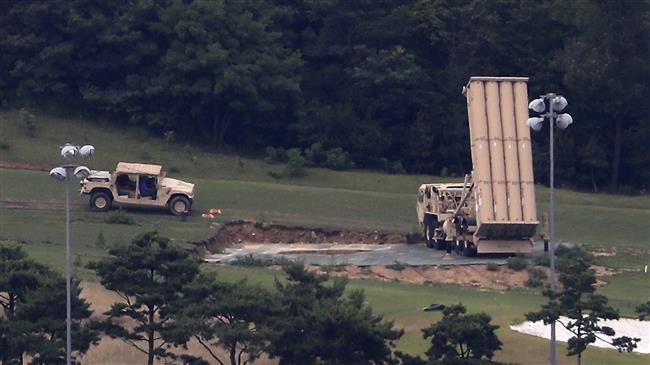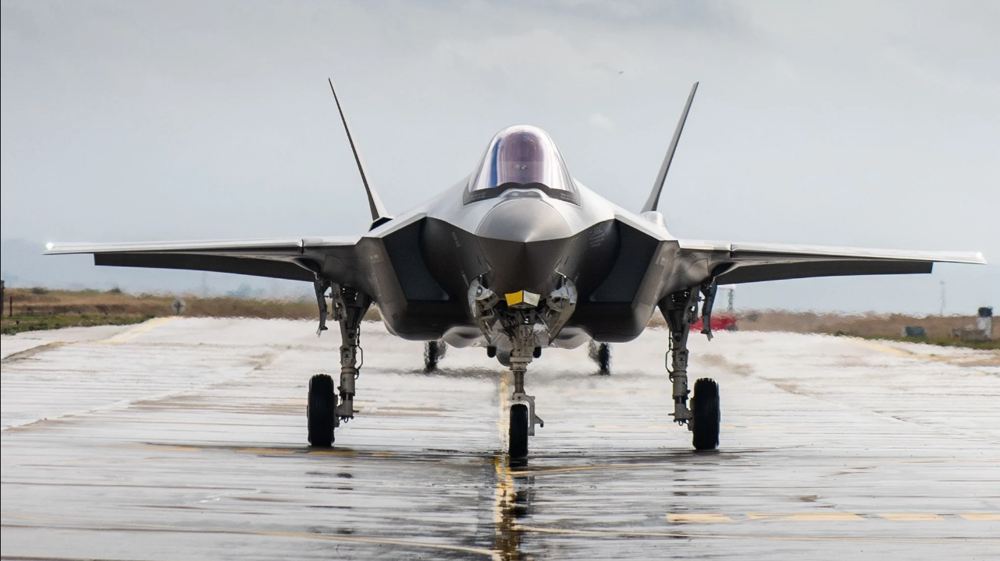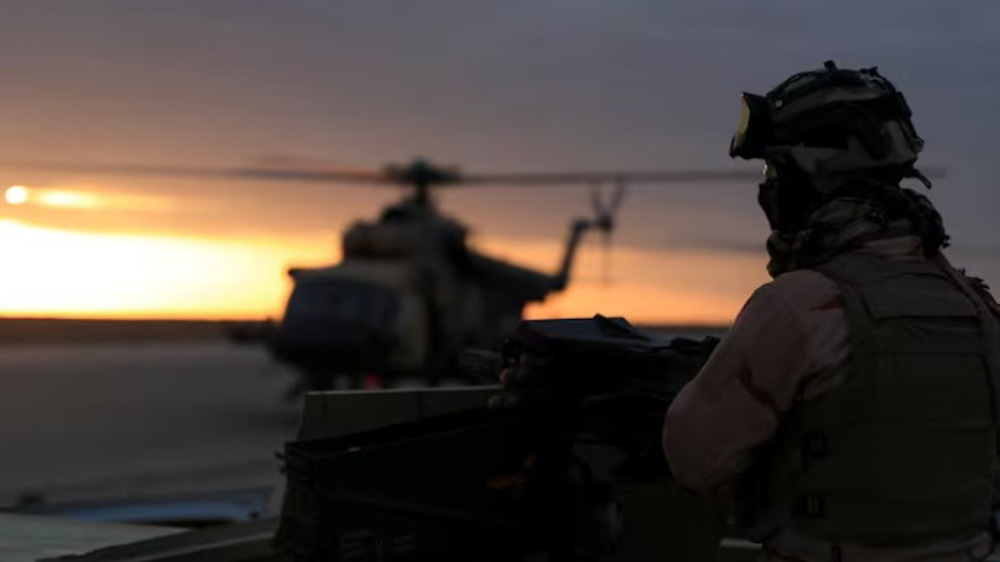Lockheed Martin receives $2.5bn deal to forward US THAAD deal with Saudi Arabia
The US Department of Defense has awarded arms manufacturing giant Lockheed Martin Corp a $2.5 billion contract to produce Terminal High Altitude Area Defense (THAAD) missile systems for Saudi Arabia, as part of President Donald Trump’s extensive arms deals with the oil-rich kingdom.
"Lockheed Martin Corporation Missiles and Fire Control [of] Dallas, Texas is being awarded a $2,457,390,566 modification… contract for the production of THAAD interceptors… to support the US government and the Kingdom of Saudi Arabia," the Pentagon said in a press release on Monday.
In November last year, Saudi and American officials signed an agreement for the sale of 44 THAAD launchers, missiles and related equipment to Riyadh worth $15 billion.
The Pentagon said the Saudi government would pay $1.5 billion of the $2.4 billion to Lockheed.
Washington proceeded with the deal despite international outrage over the role of Saudi Crown Prince Mohammed bin Salman in the murder of journalist Jamal Khashoggi, a Saudi critic who lived in the US and disappeared after entering the Saudi consulate in Istanbul on October 2.
The THAAD is built and integrated by Lockheed Martin, America’s biggest arms maker. The advanced weapon is designed to shoot down short-, medium- and intermediate-range ballistic missiles using advanced detection radars designed by Raytheon, another US arms maker.
Under the new deal, the Pentagon will upgrade obsolete systems in Saudi Arabia’s air defense infrastructure to better integrate the THAAD technology.
The deal comes as Riyadh continues negotiations to purchase advanced Russian S-400 missile defense systems much to Washington’s despise.
Washington and Riyadh entered formal discussions for THAAD in December 2016.
During his first trip to Saudi Arabia in 2017, Trump signed a $110 billion arms deal with the Saudis, with options to sell up to $350 billion over a decade. Facilitated by Trump’s son-in-law and senior adviser Jared Kushner, the massive package includes missiles, bombs, armored personnel carriers, combat ships, THAAD missile systems and munitions.
Lockheed welcomed the deal back then, saying, “we are proud to be part of this historic announcement that will strengthen the relationship between the United States and the Kingdom of Saudi Arabia.”
Congressional approval for the THAAD missile system sale was given in 2017.
Trump discussed the sale in a late September 2018 phone call with Saudi King Salman, according to Saudi sources.
The US has already supplied the advanced missile system to the United Arab Emirates, Saudi Arabia's neighbor and staunch ally. The system has also been deployed to South Korea to allegedly address US regional allies' concerns about a possible strike by North Korea.
US, Israeli forces complete joint THAAD drill
It was reported on Monday that Israeli and American forces had wrapped up a five week-long test of the missile system in the occupied Palestinian lands.
The drill began on March 4 and involved some 250 US officers and soldiers who trained with 15 Israeli Air Force personnel trained at the Nevatim Airbase on quickly deploying the missile system in Israel.
Maj. Gen. Andrew J. Rowling, Deputy Commander of the US Army in Europe, told Israeli media that the drill sought to test US troops' ability "to rapidly deploy a THAAD system thousands of miles across the globe, and then integrate into one of the most complex missile defense architectures in the world.”
This was the first deployment of THAAD to Israel, where it is slated to add a new layer to the regime's missile network.
Wary of the missile prowess of Lebanese and Palestinian resistance groups as well as Iran’s arsenal of powerful ballistic missiles, the Tel Aviv regime has so far spent billions of dollars on developing a range of different anti-missile systems.
The Israeli military currently employs the short-range Iron Dome, the exoatmospheric Arrow system and the David's Sling anti-missile system to counter incoming attacks. Initial trials, however, have raised doubts about their reliability.
Read More:
- US Army to acquire Israeli Iron Dome missile systems
- Saudi Arabia buys Israeli 'Iron Dome' system: Report
The Iron Dome proved futile last year, when Palestinian resistance movement Hamas launched hundreds of rockets at Israeli targets. It also failed to intercept a barrage of missiles fired by Lebanese Hezbollah fighter during the 33-day war in 2014.
The Israeli military is also equipped with the US-made Patriot missile system, similary purchased by the Saudi military.
The Patriot has already proven futile in battle. Last year, the much-touted American system failed to shoot down short range Yemeni missiles that flew all the way to Riyadh and targeted its international airport.
Trump threatens 200% wine tariffs on France to push Macron to join Gaza board
Yemen’s Saudi-backed PLC slams UAE for running secret prisons; Abu Dhabi denies
Swiss MPs move to strip UEFA of tax-exempt status over failure to ban Israeli teams
VIDEO | Massive Michigan pileup sees over 100 vehicles collide in highway crash
Diagnosing the roots of Iran’s economic turmoil
VIDEO | Press TV's news headlines
Son of Iran’s deposed Shah urges US, Israel to bomb country after failed ‘regime change’ plot
Jan. 12, 2026 – the day Iranians again rallied to reject hostile plots against Islamic Republic












 This makes it easy to access the Press TV website
This makes it easy to access the Press TV website